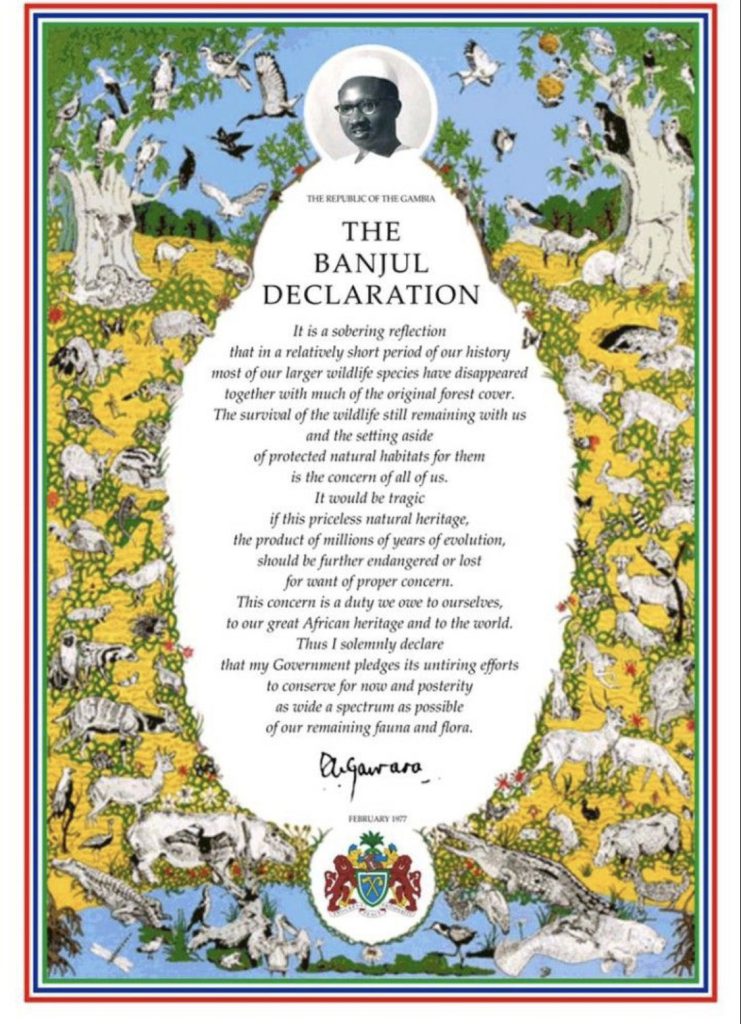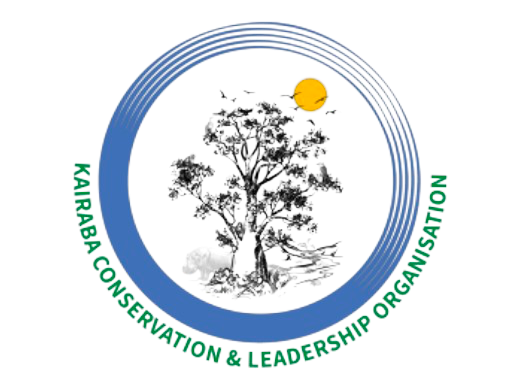The Unique Visionary character of the Banjul Declaration.
We are all familiar with the Banjul Declaration, published in 1977. This phenomenal document makes a unique visionary appeal for the preservation of the environment, and the dwindling flora and fauna in the country. The Declaration is far sighted and uniquely prophetic. Viewed against the back drop of the global reality of climate change and its horrific consequences everywhere, it is fair to say that the many years of neglect and the lack of effective measures to combat environmental degradation, make the Banjul Declaration more relevant today than it was, Forty-six years ago.
When it was delivered on the occasion of our 12th anniversary of independence in 1977 as part of Sir Dawda’s familiar “BOYS & GIRLS” Independence Day Address, little did the world realise that climate issues would take front and centre stage in global climate discussions as it has done today. Since 1977, the Gambia has lost some of our most precious animal and plant species. We will continue to lose even more if conservation measures are not taken now.

If you look around, you will see that most of our natural forest cover has been lost, and with it, a number of wild animals such as hyenas, antelopes and a large number of birds have also disappeared. In our waters, the popular Bonga fish, is significantly threatened due to unregulated fishing practices. These threats, coupled with other negative human activities – the burning of fossil fuels that pollute the atmosphere in many different ways, have put in jeopardy, the delicate bio-diversity balance with which nature endowed our planet Earth. The truth is, all of these could have been avoided had we listened to the message Sir Dawda gave in the Banjul Declaration more than four and a half decades ago.
The visionary aspect of that message, was recently acknowledged by the Economic Commission of West African States (ECOWAS) who described it as one of the most significant environmental/conservation pronouncements by an African leader, who had not only foreseen, but had warned of, a looming climatic catastrophe if mankind took no corrective action.
In his words, Sir Dawda said, “It would be tragic if our priceless natural heritage, the product of millions of years of evolution, was lost for want of proper attention”.
Sir Dawda did not only talk the talk, he lived by example. He spearheaded the re-forestation effort at Nyambai and ordered the establishment of National Forest Reserves in various parts of the country. He personally took part in tree-planting exercises along the dual-carriage way linking Yundum International Airport to the Brikama Highway.
This legacy of a great leader should be upheld by all Gambians by – developing and organizing programmes to inspire young men and women, to embrace the ideals of “Conservation Leadership”, and build the foundation for a strong, sustainable socio-economic and progressive society.
We are morally obliged to never forget the conservation leadership vision of Sir Dawda who again said, “It is a duty we owe to ourselves, to our great African Heritage and to the world, to protect the wildlife still remaining with us”.
Let’s pause for a moment and reflect, did Sir Dawda foresee climate change back then in 1977? The answer is, yes he did. But did the world listen? No it didn’t. We kept on cutting down and burning the natural forests, driving many animal species to extinction and constantly abusing and polluting the environment through our way of life. In so doing, we have triggered the most severe threat to global health, safety and security, on a scale never dreamt of before by our fore-fathers.
I commend ECOWAS for acknowledging Sir Dawda’s simple message “Protect the environment for the sake of future generations”. This is the mission of KairaCLO. We will do all that is necessary, to ensure that future generations, live in perfect symbiosis with our remaining flora and fauna.
We count on your support to work together for a sustainable future.
Thank you.
Hon. Bemba Tambedou
